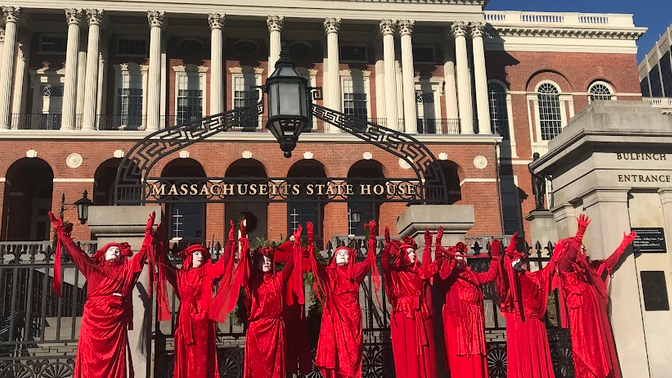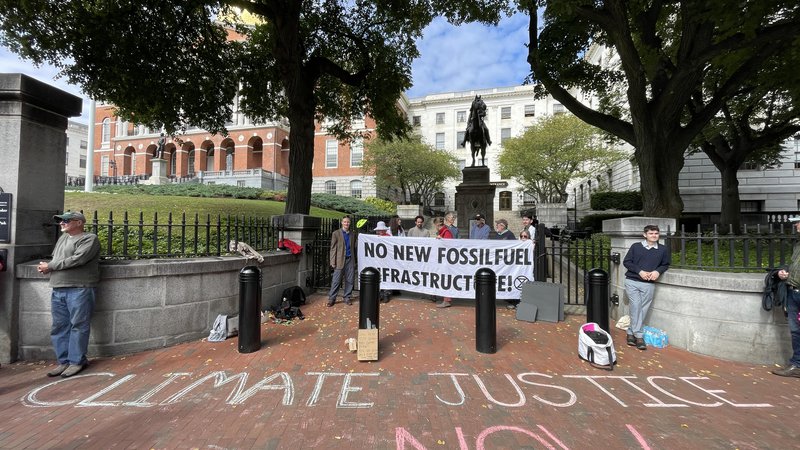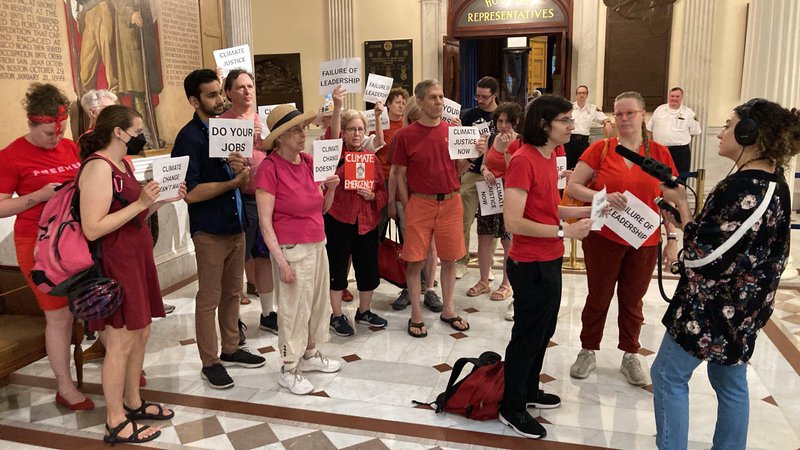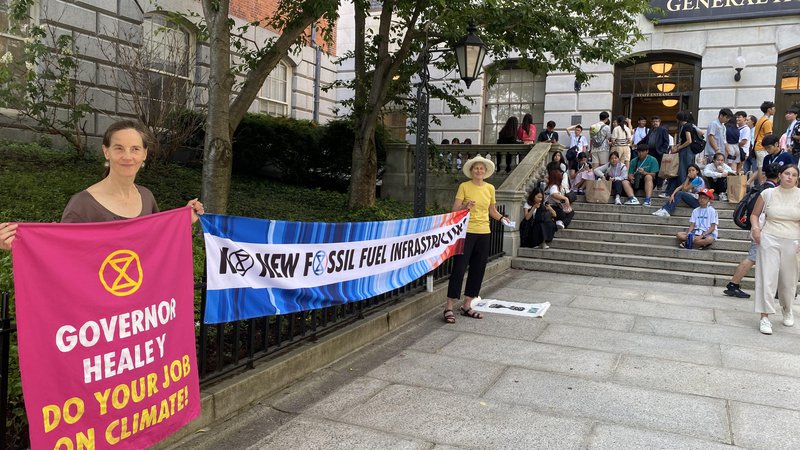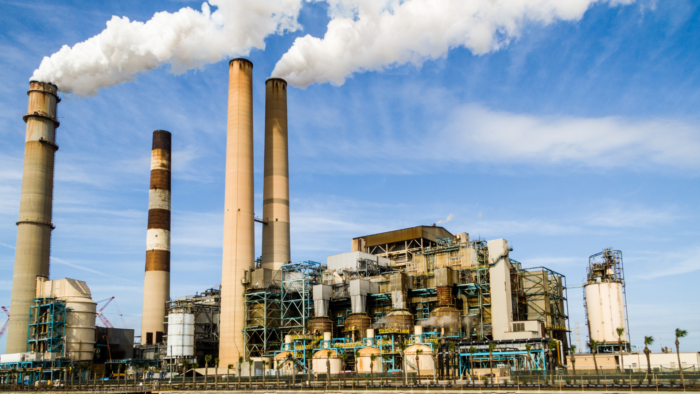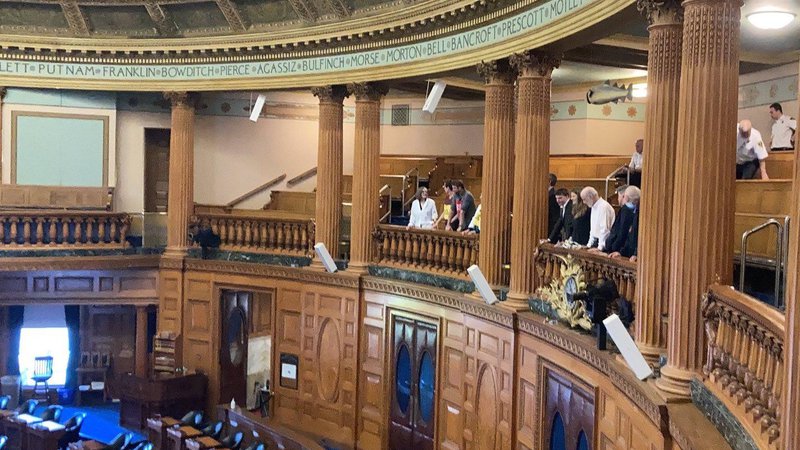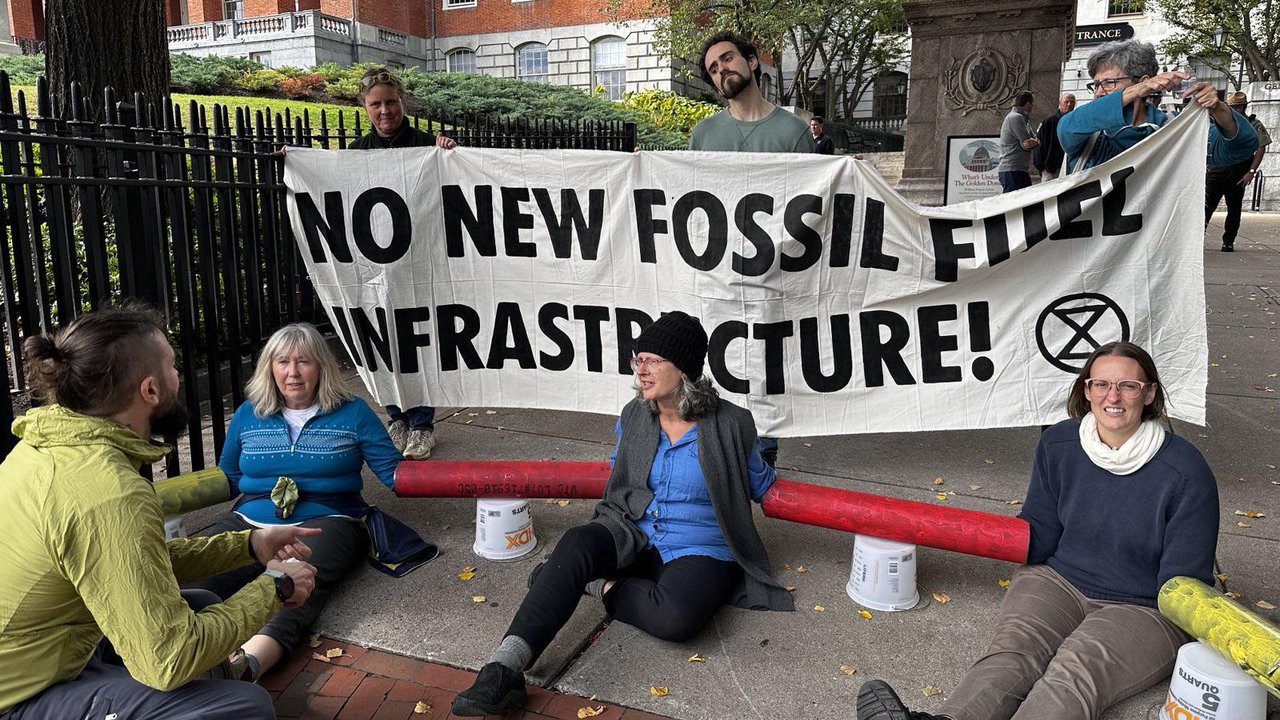
What's Going On With the MA Climate Bill?
Surely amidst the pre-election hubbub, you’ve heard whispers of the Massachusetts Climate Bill’s unlikely resurrection. For a few weeks, there was a deluge of articles and talks of rallies at the State House, but then silence. Like us, you might be wondering “What the heck is happening? Are we getting a climate bill this year or not?” Our newsletter team needs distraction from the election too, so we’re here to bring you the scoop. Despite state representatives celebrating that “Legislative leaders have agreed to a final version of the bill,” it hasn’t actually passed yet.
As you may remember, the formal sessions of Senate and House legislators ended on August 1, and they failed to produce a version of the “climate and clean energy siting and permitting bill” that they agreed upon. Then, in late September, XR Boston blockaded the State House gates for 3 days, demanding immediate climate action. A few weeks later, the House and Senate surprised us by announcing that they were working together on a bill, with hopes to pass it before the end of 2024. “Massachusetts must continue to be a national leader in the effort to combat climate change, a prerequisite for which will be transitioning to a clean energy economy and creating high-quality jobs in the process,” Senator Michael Barrett and Representative Jeffrey Roy, chief negotiators of the bill, said in a joint statement.
Next Steps: More Delays
On October 17, House and Senate leaders announced that a conference committee agreement on the climate and clean energy bill was reached, but still needed to be approved. The next week, on October 21, the conference report passed the Senate on a vote of 38-2. When it moved to the House in an informal session, the Republican Leader moved to doubt the presence of a quorum, a parliamentary tactic that automatically shuts down an informal session. Afterwards, Speaker Mariano pledged to take up final passage of this bill when the House returns to formal session to vote on the economic development bill. Representative Mike Connolly’s office set that timeline as, “hopefully in the coming days or weeks.” The last “still waiting” update came on October 28.
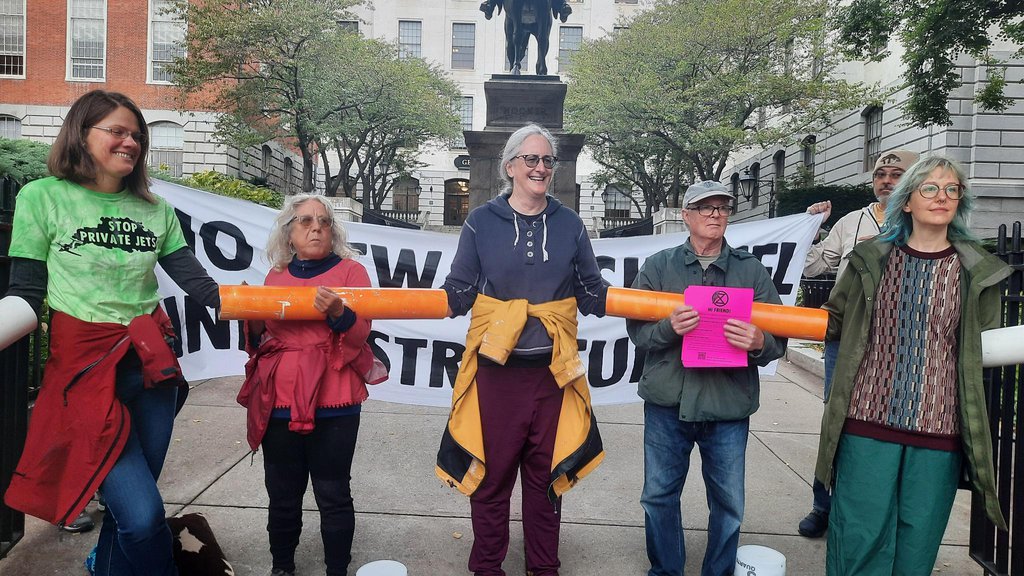
What is in the Climate and Clean Energy Siting Bill?
If you want to read the full Climate and Clean Energy Conference Report, S.2967, An Act Promoting a Clean Energy Grid, Advancing Equity and Protecting Ratepayers, be our guest! It's surely less painful than reading election coverage.
According to Representative Mike Connolly’s office, “the climate and clean energy conference report proposes a set of reforms and policies that aim to simplify the process for new clean energy infrastructure site identification and permitting while outlining additional components to adopting clean energy use in the Commonwealth.” Connolly says these proposals include:
- Establishing the Office of Environmental Justice and Equity to set new standards ensuring all have access to a clean environment.
- Expediting the transition to clean energy infrastructure through consolidated state permitting for all state, regional, and local projects. This means that it should get faster and easier for clean energy projects to be built.
- Increasing energy affordability by granting DPU authority to establish criteria for a moderate-income discount rate in addition to low-income rates.
- Requiring Energy Distribution Companies to deploy advanced metering infrastructure to assess energy usage and create a centralized data repository for consumer access.
- Requiring the Department of Energy Resources to forecast electric vehicle charging demand through 2045 along major routes/service plazas in an effort to establish electric vehicle infrastructure. This is helpful for electric vehicle drivers!
- Increasing eligibility for lessees of an offshore wind facility for either the offshore wind tax credit or the refundable credit for capital investment.
- Including geothermal in the definition of a gas company and fusion energy as a renewable energy.
This bill sets out a requirement that the state procure 5,000 megawatts of energy storage by 2030 (for context, last year Massachusetts installed about 570 megawatts of storage). This expanded storage capacity will result in a greater percentage of our energy use to come from renewable sources rather than fossil fuels. Importantly for our friends in East Boston and the Hanscom Field area, the legislation also includes changes to the MassPort charter that will require the agency to consider reductions in fossil fuel emission.
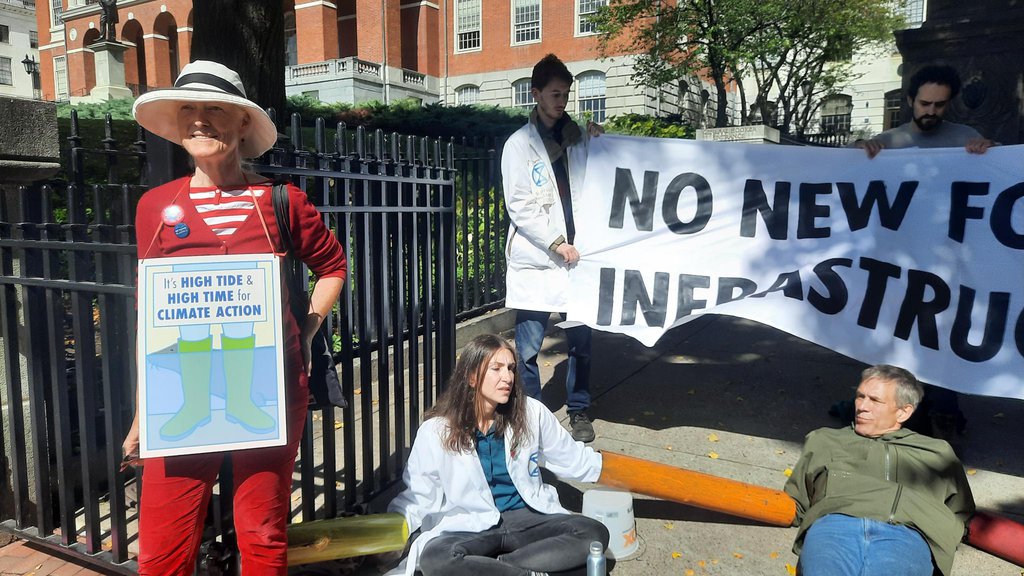
What does the Bill not do?
While the bill supports the growth of clean energy, including geothermal and wind power, it does not mention stopping new fossil fuel infrastructure, which is a crucial step to a livable future. Until that ban exists, fossil fuel companies will continue to grow. Even if more state funding is allocated to clean energy, fossil fuels are supported by federal subsidies and will not suffer any loss.
What can we do now?
If you are ready to take direct action to demand immediate forward motion on climate, you should attend an online Non-Violent Direct Action Training. If your climate emotions are feeling heavy, please join our one of our online Climate Grief Circles.
Related Stories:
Featured:
-
The third annual Week of Rebellion is full of opportunities for celebration and action!
-
Our government had the opportunity to finally turn our state into a "climate leader," and they decided yet again to prioritize profits and political posturing over the well-being of residents.
-
Prominent climate scientists and activists demand immediate climate action in the United States.
-
Stop the Fossil Fuel Industry, Now: List of events for Extinction Rebellion Boston's September week of rebellion
-
A compilation of books, movies, articles, and ways to take action to protect Black lives
-
Nadia Colburn, PhD and member of Extinction Rebellion Media team, discusses how to talk about the climate and ecological crisis with family and friends.
Upcoming Events:
-
Tue Feb 17th @ 6 p.m.
-
Fri Feb 20th @ 6 p.m.
-
Sun Feb 22nd @ 10:15 a.m.
